Book review: How We Believe
by Michael Shermer
★★★★★
Michael Shermer is the founding publisher of Skeptic magazine, the director of the Skeptics Society, and host of the Skeptics Lecture Series. I don’t need to tell you what sort of direction this book is going to take. But even knowing what to expect, this was a fun book, well worth the read!
Shermer, noting that 96% of Americans believe in God and 73% believe that angels regularly visit earth, asks this question: Why? Why do even 40% of scientists proclaim a belief in God? Why do more people believe in paranormal phenomena now than 100 years ago? Why do we believe at all, and why must we seek meaning in higher places? What is our fascination with ghosts and séances? Is belief in God genetically programmed? Some kind of “God module” in our brains?
Mankind is a pattern-seeking animal, whether this talent is used to see the Virgin Mary in patterns of light and shadow or to see meaning within the randomness of coincidental events. Mankind is also a storytelling animal. We love our stories, and our stories do more than describe our reality, they help create our realities. So, as we move from pattern-seeking to storytelling, we naturally journey on to mythmaking. Origin myths abound in various cultures. But the journey of humanity doesn’t end there. From mythmaking we jump ahead to morality, from morality to religion, from religion to God. Perhaps we are wired to believe; perhaps there’s a certain inevitability in the way the human experience has evolved.
Shermer presents a number of studies and interviews as he leads us on this journey. One of the most fascinating studies in Shermer’s book compared answers to two questions: “Why do you believe in God,” and “Why do you think other people believe in God?” The answers don’t jibe. Other people believe in God because they were raised that way, or because it brings them comfort to believe, or because people have a need to believe. But what do people answer as to why they believe? Well, because they’ve thought it through, of course; the universe is too orderly, or the experiences they’ve had could only come from God.
Shermer’s approach is scientific, yet controversial. The conclusions are his own; but I guarantee the book will make you think, and I guarantee you’ll enjoy the read.

Book review: The Calling: Living a Life of Significance
by Kurt Senske
★★★★
This is a self-help workbook for Christians, complete with exercises. A guide to spicing up everyday life with meaning, by discovering and living in alignment with the purpose God has set for our lives. It’s “impossible for us to live the life that God created uniquely for us and continue to live in our old ways.” So, Senske provides a workshop for people who want to change their lives now, who are dissatisfied now with a life of insignificance.
How do we choose our job? How do we manage our finances? How do we budget our time? Although the focus of the book is on secular issues, the solution is always finding the path that’s in harmony with God. We must recognize that we don’t choose our calling; God chooses it for us. Step one, then, according to Dr. Senske, is to make God central to our lives.
Step two is to “connect the dots,” recognizing God’s hand in all of life’s little synchronicities. Step three is to incorporate rituals into our daily lives. By the time you reach the final exercise, your life will be transformed … by accepting God’s purpose for you.
I confess that, as a liberal Christian, I had trouble relating to a few of the themes. Perhaps I overestimated myself when I offered to review a book for Christian living, based upon practices and beliefs many of which I, myself, have grown away from. While I have no trouble imagining a God-filled purpose to life (where “God” may be defined very differently from person to person), I can’t quite relate to praying to Jesus, or seeing the hand of a divine being in odd coincidences, or attending church every Sunday without fail.
I’m going to give the book four stars instead of five, being true to my measurement of how much the book taught and captivated me. But there is much wisdom in many of its strategies, and I’m certain its teachings will click even stronger with more conservative Christians.

Book review: Jesus and the Jewish Roots of the Eucharist
by Brant Pitre
★★★★★
Ever wonder how the Eucharistic teachings of the New Testament evolved? Where did Jesus get the idea for his Last Supper ritual? How did Paul think to tie this ritual to his theology of atonement? Why does John’s Gospel emphasize so strongly the Paschal Lamb? Why were the church fathers so adamant about tying the Eucharist to the Passover?
Because the Sacraments have deep Hebrew roots. I have studied a little about the pagan influences on the ceremony of bread and wine, this concept of “eating the body” and “drinking the blood,” but never delved much into its Hebrew side … other than to imagine how bizarre it must have appeared to God-fearing Jews, who had been taught since childhood never to ingest blood. Pitre digs into scripture and Judaic writings, and his research is fresh, scholarly, and easy to digest. If I can find more Pitre books, I’m going to snap them up.
Absolutely fascinating, and critical to Pitre’s conclusion, is a chapter in his book about the “shewbread” (showbread), what Pitre calls the “Bread of the Presence.” This bread, kept fresh in the Holy of Holies at the back of the Temple, shares a table with the libation flask, and thus links to the wine offering. Judaism has long connected the bread and the wine, back to the days of the very first priest, Melchizedek. But this holy bread carries with it a certain symbolism, understood by every Jew each time it was carried out for their viewing at the major festivals. Jesus references this “Bread of the Presence” (the presence of God, if you haven’t already guessed) directly in the Gospels, and it forms an important basis for understanding Jesus’ teaching at the Last Supper.
One interesting conclusion Pitre reaches is that Jesus never finished the Passover meal with his disciples! The fourth and final cup of wine, which each participating Jew shared during the Passover celebration, was never drunk. Instead, Jesus drank this final cup just moments before his death. Pitre thus brings the theological meaning of Jesus’ timing to life in a most intriguing way.
Pitre writes from a conservative Catholic perspective, as seems appropriate. (I’m no scholar of current-day religious practices, but who finds more ritualistic meaning in the Eucharist than the Catholics?) He does lean toward a Roman Catholic understanding of the bread and wine, though he avoids the word “transubstantiation” in favor of the baggage-free phrase “reality of Jesus’ presence in the Eucharist.” But I guarantee Christians of all denominations will enjoy this one.

Book review: Is There An Afterlife?
by David Fontana
★★★
“There is no doubt in my mind,” says Fontana, “that the question of whether or not we live after death is by far the most important that faces us.” Surely we are more than merely biological accidents with nothing more to motivate us beyond the struggle to remain alive. Luckily, the back cover promises, “After reading [this book] and assessing the evidence, there can no longer be any doubt that there is life after death.”
As far as I’m aware, this is the most exhaustive study ever on the afterlife. 496 large-size, small-print pages. The sheer volume of evidence would appear overwhelming, except that the majority of the book is about mediumship. I was a bit disappointed in this focus, but Fontana lists “Professor of Transpersonal Psychology,” “Vice President of the Society for Psychical Research,” and “Fellow of the British Psychological Society” among his credentials, so his primary focus should come as no surprise.
There are other topics, including apparitions, hauntings, near-death experiences, out-of-body experiences, and studies of reincarnation, but they receive comparatively little attention. One chapter summarizes the findings of what the afterlife must be like; whether we will sleep, enjoy sex, become wiser, retain our individuality, interests, memories … if you’re curious, Fontana concludes that in the afterlife you’re going to be pretty much the same person as you were in this life.
Overall, I found the book unconvincing, but I’ll try to include some reviews shortly of other books on the topic that I found more fascinating.

Book review: Ashen Sky: The Letters of Pliny the Younger on the Eruption of Vesuvius
Illustrated by Barry Moser
★★★★
Here’s an interpretation of the two letters of Pliny the Younger to Tacitus, about the eruption of Mount Vesuvius in 79 C.E. Black-and-white wood engravings by artist Barry Moser illustrate the grotesque images described in Pliny’s letters. Moser’s engravings have illustrated more than a hundred books, including Moby Dick and Alice in Wonderland.
Ashen Sky is a good title. Ash from Mount Vesuvius’ eruption in Italy spread to Egypt, Syria, and Africa, spreading pestilence. Two cities at its base, Pompeii and Herculaneum, were completely buried in ash and lost to history … finally uncovered 1,800 years later by a chance archaeological discovery.
Readers of my book about Revelation will immediately recognize the connection of Mount Vesuvius to my religious book blog. Its eruption eerily mimics the description of fire and brimstone torment in the book of Revelation, and many Bible scholars surmise that the image must have burned itself permanently into the mind of Revelation’s author. Read especially chapter eight, about the seven trumpets.
It’s hard to overestimate the cosmic importance of this event; an eruption of this magnitude happens somewhere on earth about once every 1,000 years. If parts of Revelation begin to sound like the ravings of a madman with a fist full of prophetic scriptures to explain, we can surely pardon its author. So if you’re curious about Revelation’s inspiration and wish to read the letters of Pliny the Younger, you may as well choose a fun picture book to read.

Book review: Rabbi Jesus, An Intimate Biography
by Bruce Chilton
★★★★
Definitely one of my favorite authors. I believe he’s the one who called my most-studied scripture, Revelation, a “perfectly rancid book.” But I forgive him; I think that quote sets the tone for his book about the practical, historical Jesus in 180-degree contrast to the bloody warrior image some Jews & Christians wished of their Messiah.
Chilton is a great story-teller, and his writing immerses us in the world of Jesus. Temple procedures and the Roman Empire come alive. Chilton knows his stuff. Do be aware, however, that he makes up his own caricature of Jesus–a caricature that more closely resembles the popular Buddha in looks and practices than the popular Jesus. It’s a fill-in-the-gaps series of best guesses. I’m sure Chilton would be the first to admit he has flavored the image of Jesus somewhat for our reading pleasure. For example, Jesus grows fat because he’s known to enjoy a good meal.
Chilton’s Jesus is a bitter-but-lovable dreamer who begins to believe his ambitions are God-ordained. Though he ultimately fails in his reformation of the Temple and transformative vision for Judaism, he does accomplish a splinter movement which grew rapidly in the second century, and his legend lives on and continues to inspire, adding meaning to our lives two millennia later.
If Chilton does have a spiritual agenda in writing, it’s a commendable one. The Epilogue states,
“The rabbi from Nazareth never claimed he was unique. His Abba was the Abba of all. His teaching, purifying, exorcism, healing, prayers, signs, meals, and sacrifices were not for himself alone, nor were they intended to demonstrate his personal power or bring him adulation for his attributes or accomplishments. All his work was undertaken to open the gate of heaven so that Israel might enter before the Throne of God.
Far too much theology has been preoccupied with closing that gate. By exalting Jesus as the only human being to sit on the right hand of God, many theologians have denied heaven to others. They remind me of Jesus’ complaint about some Pharisees, who used the key of knowledge to shut God’s Kingdom to those of lesser learning.”

Book review: Kingdom Coming
by Michelle Goldberg
★★★★★
Goldberg, a secular Jew, provides a hard-nosed look at the agendas and power of ultra-conservative Christian organizations in the United States. Goldberg calls this trend “Christian Nationalism,” after the openly-stated goal of many fundamentalist leaders to “take back America.” From, of course, the gays, the morally decadent (such as distributors of birth control), the Darwin-lovers, and the unpatriotic atheists who believe in separation of church and state.
Goldberg comes on strong and occasionally a bit sarcastic—for example, she bemoans the way Intelligent Design proponents have flaunted academic degrees to present their theories as “something more respectable than creationism in drag”—but her anti-fundamentalist rhetoric may not be overstated at all. Her research exposes the very real underground motives of the religious right, who feel bound by their beliefs to combat a spiritually bankrupt nation. There’s no greater motivation than the conviction that one is following God’s explicit orders.
“Dominion theologians” nationwide take Genesis 1:26-28 (where God tells Adam to assume dominion of the world) as scriptural direction for Christians to assume control by divine right. The Christian duty is to seize it. Evangelists with crazed followings preach that the separation between religion and politics is “what Satan likes most,” and call for a regime that will clean up the “dung-eating dogs” (gays). Jews better repent, too, since the holocaust God planned didn’t seem to get through to them. But more dangerous than these extremists are the everyday right-wingers who are raised to carefully infiltrate government and the Judicial bench for the good of Christ, so that that our nation can be set right … so that we can quit handing out condoms, quit treating gays like they’re equals, quit pretending evolution is more scientific than creationism. Under President Bush’s lead, government grant money by the millions poured into these agendas. The back cover promises a “witty, funny” read, but I couldn’t laugh. Religion-gone-bad is jaw-droppingly frightening, and this is a hard book to put down.
Goldberg calls for action. She explains that “the anxieties that underlay Christian nationalism’s appeal—fears about social breakdown, marital instability, and cultural decline—are real. They should be acknowledged and, whenever possible, addressed. But as long as the movement aims at the destruction of secular society and the political enforcement of its theology, it has to be battled, not comforted and appeased.”

Book review: Evidence for Jesus
by Ralph O. Muncaster
★★
I don’t know where to start with this one. I seldom give bad reviews, preferring to ask the author if they’d rather I withhold my review if I can’t recommend their book, but this is one I bought on my own … and wasted my money.
Of late, I’ve immersed myself in several books attempting to prove not just the historicity of Jesus’ life but the Gospel story of nature miracles and resurrection. They just keep getting worse. In light of my disappointment in these studies, I’ll go out on a limb, here, and state that the worst thing Christians can do is try to “prove” their beliefs. It ain’t working. Religion is not about evidence, but about faith where there is no evidence (or, often, in the face of opposing evidence).
Each chapter of Muncaster’s book wraps up with a short summary of its conclusions, so I went back through the book just reviewing these summaries. They’re a head-shaking assortment of absurdities and false claims. Here are the first few:
“The inability of the Jewish leaders and the Romans to produce the corpse of Jesus is powerful evidence that it didn’t exist—given that everything reasonable was done to protect it and there was no motivation for others to steal it. The logical conclusion would be that Jesus indeed rose from the dead.” How many absurdities can you count in one claim? Why would anyone guard the tomb of a man they considered a crucified criminal? It’s only Matthew who reports this unlikely story. The logical conclusion is not that Jesus rose, but that he was never in a tomb (or at least a known tomb) to begin with.
“The martyrdom of the apostles, who knew Jesus intimately, is a powerful example of eyewitnesses who were absolutely convinced that Jesus Christ died and rose again from the dead.” Well, if we had any reliable historical evidence of martyrdom, we might have some indication that this is true. In truth, we simply don’t know what happened to any of the twelve, beyond some incredible legends.
“There were many highly memorable events during Jesus’ time, capped by his resurrection. These would certainly gain attention and would be widely discussed. The many witnesses of the events and the resurrection—including the apostles, the friends and family of Jesus, and at least 500 others who saw the risen Christ—would attest to his resurrection.” Wouldn’t it be nice if this were true? But for all the miraculous events (darkness at noon, Herod’s killing of babies, nature miracles), we simply have no corroborating evidence outside of evangelistic Christian writings. No “widely discussed” events. We have complete silence where we should have astounding and surprising historical records. As for the “500 witnesses” to his resurrection, Muncaster’s own summary of the next chapter undermines this:
“Paul, who probably had accepted the ‘official story’ of the corpse of Jesus being stolen, had a radical change of mind upon seeing the risen Christ.” What Paul describes seeing is a light from heaven … and, yes, he counts this “vision” as just as authentic as any of the other Jesus sightings, including his story of 500 people seeing Jesus at once. Where’s the resurrected, physical body Muncaster wants us to see? Had enough, or do we keep going?
“If this resurrection did not take place historically, the Christian church would not have existed at the outset, nor would it exist today.” Muncaster wants us to imagine that Christianity’s entire foundation is on the witnessed resurrection of Jesus. He would do well to open his eyes to the multitude of other religions, both today and then, that thrive and thrived even as Christians pooh-pooh the supernatural claims of their competitors.
I won’t close my review, however, without saying something positive about the book. Nineteen chapters into it I finally came to the final summary. Here, Muncaster concludes,“After 2,000 years, Jesus is still changing people’s lives. The evidence is startling and overwhelming: Millions of people gladly testify to the positive, dramatic difference Christ has made in their lives and the strength and hope he gives them every day.” Finally, I can say that I agree. I do not know how belief works, I do not understand why it doesn’t seem to matter whether or not one’s beliefs are true, I only know that believing is magical. I can imagine just about any explanation for this phenomenon except the one Muncaster pushes—that a man climbed out of his tomb, ascended into heaven, and there controls our destinies. That one must remain a matter of faith.

Book review: Man of God
by Debra Diaz
★★★★★
This is an intriguing story about the birth of Christianity among the Gentiles, particularly in the city of Rome. It’s a sequel to Diaz’s first book, Woman of Sin, though I don’t believe it’s necessary to read book one in order to enjoy book two.
Paulus and Alysia, with their daughter, Rachel, hide from the Roman authorities while spreading the message of Jesus in Christianity’s underground movement. However, the time comes when they must all three take a stand for their beliefs. The plot is engaging, and the tension builds as they choose to leave things in the hands of God, though it’s never a question of God’s power, but of His will. Will God rescue them, or will He stand idly by and let them succumb to Roman torture and cruel death?
I love Diaz’s chosen historical era! Little scholarly emphasis has gone into studying Christians of this period, the 30’s and 40’s of the first century, and precious little is known about how Christianity took hold. Paul’s letters give us our best hints. So Diaz clings pretty tightly to the Pauline picture of church-planting as she recreates the atmosphere of early Mediterranean beliefs. For example, the characters battle against spirits and bodily possession. (The main character, Paulus, manages to exorcize a demon from a man, though his wife, Alysia, fails in her attempt to perform the same miracle on the Emperor, Caligula.)
There is an exception, however, to its authenticity. Diaz portrays the Christianity of the early first century very much like today’s Christian teachings. This is my one disappointment with the story; its lack of authenticity in this area stands out since the spread of Christianity is the focus of the story. I’ll give an example:
In one scene, Paulus, the main character, meets a friend’s father on his deathbed and tries to convert him. “When your soul leaves your body it will go to one of two places. To be forever with God, or to be forever separated from him in a place of torment, reserved for those who refuse to accept his son as savior, the one who paid for their sins.” The fellow dies, and we hear no more about him. So why include the scene? If it’s meant to add historicity, a more interesting and authentic choice of theology would be the apostle Paul’s teaching that the sinful die forever (annihilationism) or the Greek teaching of soul punishment for the extremely evil (which this man was not) or the Jewish belief in a physical, bodily resurrection for God’s chosen nation (such as that described in the book of Revelation). All of these theologies would be more believable for the time period of the story, and in my opinion more interesting. Diaz’s choice to use contemporary beliefs made me feel a little like I was being preached at.
Then I reached the climax. Excellent!! Exciting, authentic, appropriate, thought-provoking, mildly disturbing, all my complaints dissolved in twenty pages as Diaz came through with the perfect ending. Christianity is born!

Book review: The Last Week
by Marcus J. Borg & John Dominic Crossan
★★★★★
Beginning with Palm Sunday and continuing through the following Sunday, resurrection day, Borg and Crossan lead us day-by-day through the events of Christianity’s holy week. There are differences between the Gospel accounts, especially when it comes to John’s Gospel, so the authors are at times forced to play favorites. Because Mark is the earliest Gospel, and because Mark goes out of his way to chronicle the day-by-day events of the Passion week, the authors chose Mark as their primary source.
The stage is set early, on the first day of the week, as Jesus rides a donkey down from the Mount of Olives, through the east gate of the city. On the opposite side of the city, Pontius Pilate, the Roman governor, arrives at the head of a column of imperial cavalry and soldiers. Jesus’ procession hailed the arrival of the Kingdom of God; Pilate’s, the power of the Empire. It’s not going to go well; this becomes clear early on, as Jesus plans his symbolic resistance. He arrives back on Monday and “attacks” the Temple, overturning the tables of the money changers and the seats of those who sold doves.
The following two days, Tuesday and Wednesday, portray the disciples in their attempt to comprehend what is going on. The very first “Christian” perhaps appears during this time: An unnamed woman recognizes that Jesus is about to die, and anoints him for burial.
Thursday may be the most theologically significant day, as we experience the Passover meal, the Gethsemane prayer, and the arrest.
Good Friday needs no introduction. Jesus succumbs to the Roman machine, dies with a cry of despair, and leaves the disciples in a great state of confusion and sorrow through Saturday, the Sabbath. (Mark’s Gospel itself says nothing at all about Saturday; the feelings and events must be inferred, or taken from elsewhere, such as the tradition of Christ descending into Hell.)
Finally, Easter, and the joy of resurrection. By far, this is the most confusing day of the week. Again, Mark’s Gospel leaves us with little to go on; the original ending in Mark is very abrupt. Three women discover an empty tomb, and run away afraid, telling no one. It is only in the unfolding legends of other Gospel writers that we can try to piece together what this day meant to Jesus’ followers. Regardless of how we imagine the actual events, the message is clear: Jesus lives!

Book review: The Language of God
by Francis S. Collins
★★★★★
Current-day proponents of the New Atheism like to push the idea that atheism is the only rational belief, and believers are weak-minded non-thinkers who hide from science. This just simply isn’t so. Some very accomplished scientists in many different fields are believers.
Here’s one. Francis Collins is a devout believer and distinguished scientist (he is the head of the Human Genome Project) with a questioning mind and a reverence for reason … and for the merger of science and religion. From the cover flap, “In short, Dr. Collins provides a satisfying solution for the dilemma that haunts everyone who believes in God and respects science. Faith in God and faith in science can be harmonious–combined into one worldview. The God that he believes in is a God who can listen to prayers and cares about our souls. The biological science he has advanced is compatible with such a God. For Collins, science does not conflict with the Bible, science enhances it.”
That’s a pretty intriguing claim, and it aroused my curiosity. In this book, Collins wrestles with questions like “What came before the big bang?” and “How did life originate?” I should set things in perspective before continuing; Collins is not promoting some flaky version of pseudo-science. He’s for real. He praises Darwin and admits that no serious biologist today doubts the theory of evolution. “The relatedness of all species through the mechanism of evolution is such a profound foundation for the understanding of all biology that it is difficult to imagine how one would study life without it.” A lot of effort is spent explaining “biological truth,” and in a chapter titled Deciphering God’s Instruction Book, Collins introduces–no, not the Bible–the lessons of the human genome.
Still, Collins respects the Bible. He dives into the debate about what Genesis really says, and why we have contradicting versions of the creation in the Bible if this poetic and allegorical writing was really meant to be read literally. Young Earth Creationism just simply isn’t compatible with modern science; neither, really, is the trendy Intelligent Design explanation. Thankfully, Collins finds an ultra-literal interpretation of Genesis unnecessary. Collins proposes a solution for compatibility, which he calls BioLogos. He finds harmony between science and religion in “theistic evolution.”
Finally, having dispensed with our concerns regarding the science-versus-religion conflict, he brings up the crux of the matter. Regardless of where else we are to read the Biblenonliterally, evidence supports the fantastic story of a unique individual, Jesus, who lived, died, … and rose from the dead! Collins leans a bit on C. S. Lewis as he builds toward the climax: he, a rational scientist,logically concludes that the Jesus story is true and literal. God came down to earth in the form of a person. Wow!
While not convincing enough in itself, and leaving many other questions about the believability of the Christian God unanswered, I do highly recommend this book! It will never turn a nonbeliever into a believer, but it will definitely refine the faith of believers, helping them to overcome the dogmatism of outdated theology. Besides, it’s a fun, educational read!

Book review: A New Reformation
by Matthew Fox
★★★★★
Five centuries ago, a monk named Martin Luther revolutionized the Christian world. He devised a new vision of Christianity in 95 theses, and nailed these theses to the door of Castle Church in Wittenberg, Germany. The Reformation, as it came to be known, resulted in a schism between the Roman Catholics and what became known as Protestant Christianity.
Disgusted with the fundamentalist direction of the Catholic church (Matthew Fox was a member of the Dominican Order for thirty-four years before being expelled) and inspired by Luther’s movement, Fox decided to reenact Luther’s rebellion. His own resulting 95 theses are liberal and post-modern, reflecting a more pantheistic understanding of God over the “Punitive Father” of Catholic tradition. He then nailed these theses to the very same door. (Well, the door was no longer wooden, but metal, so he had to build a little wooden frame to nail his new Reformation.)
The gist of Fox’s Reformation is that the church needs to move away from religion, and toward spirituality. We have lost our appreciation and awe of creation (Fox is a long-time proponent of what he labels “Creation Spirituality.”) We would be better off without the doctrine of Original Sin, with its guilt-ridden baggage, embracing instead the Original Blessing, which recognizes awe as the starting point of true religion. There is no conflict between Fox’s version of Christianity and scientific discovery. No conflict with post-modern morality, granting equal respect and rights to women and to gays and lesbians.
A sampling of Fox’s 95 theses follows:
Number 6: Theism (the idea that God is “out there” or above and beyond the universe) is false. All things are in God and God is in all things.
Number 13: Spirituality and religion are not the same any more than education and learning, law and justice, or commerce and stewardship are the same.
Number 15: Christians must distinguish between Jesus (a historical figure) and Christ (the experience of God-in-all-things).
Number 36: Dance, whose root meaning in many indigenous cultures is the same as breath or spirit, is a very ancient and appropriate form in which to pray.
Number 59: Fourteen billion years of evolution and unfolding of the universe bespeak the intimate sacredness of all that is.
Number 75: Poverty for the many and luxury for the few are not right or sustainable.

Book review: Darwin’s Cathedral
by David Sloan Wilson
★★★
Can evolutionary methods be used to study the development of religion? David Sloan Wilson, a renowned evolutionary biologist, proposes that religion evolved because of the advantages it confers on those who share in it. Religion may even have contributed to humanity’s rise as the dominant animal on earth. By studying religious concepts in their group settings (religions are well known for their in-group morality and out-group hostility), Wilson places the evolution of social behavior, and religion in particular, on the same playing field as biological entities.
Group selection long ago became passé among evolutionary biologists, but it may be time for its revival. In the 60’s, it was believed that evolution takes place entirely by mutational change. Since then, it has been shown that evolution also occurs along a different pathway: by social groups becoming so functionally integrated that they become higher-level organisms in their own right. So why aren’t groups—particularly religious groupings—receiving the attention they deserve in the evolutionary field?
Wilson wants to study religious groups in the same way biologists study guppies, bacteria, and other forms of life. Does the rational choice theory fit religion? Functionalism? Using Calvinism as his primary case study, he determines that characteristics of social groups can be predicted via group selection theory.
Intelligent and cutting edge, Wilson does have something to say, but this is not an easy read; it reads like a university thesis, scholarly and reference-infested. It’s not because the theory isn’t fascinating, but because I had a hard time concentrating on the presentation, that I ranked it only three stars.

Book review: The Feasts of Israel
by Bruce Scott
★★★★★
A good way to measure the worth of a book, for me, is to page through it afterward noting how much of the text has been highlighted. In this case, a lot! If I have any criticism of the book, it’s that Scott finds too much meaning in the feasts. He works overly hard to relate every aspect of Jewish celebrations to the life of Jesus, even when the New Testament authors didn’t appear to have any intention of such parallels. This artificiality does betray Scott’s evangelistic emphasis.
This book is written very simply; a young teenager could appreciate and enjoy it as much as adults. And when this young teenager finished the book, he/she would have a deeper understanding of the New Testament’s Jewish influence than the majority of Christian ministers!
Scott covers the Sabbath and the major feasts of Passover, the Feast of Weeks, the Jewish New Year, the Day of Atonement, and the Feasts of Tabernacles in part 1. He then covers a number of minor feasts (including Hanukkah and Purim) and Jewish fast days in part 2. A concluding chapter titled Shadow or Substance? discusses what the recognition of these feasts should mean to us today, and whether or not Christians should celebrate them.

Book review: Holy Ghost Girl
by Donna Johnson
★★★★★
Excellent! Definitely a fun book, if a bit freaky. Now, there’s a word I’ve never used before in a book review!
Donna Johnson tells the story of a little girl growing up on the “sawdust trail” of traveling tent missionary David Terrell. Yes, that David Terrell. Welcome to the world of public miracles, undercover infidelity and cognitive dissonance. On a grand scale. While it’s true the story is told through the wide eyes of a child, you may turn the final page still wondering if this wayward, charismatic holy man was the real thing. Perhaps God has a sense of humor.
Here’s the odd part. I read the entire book, never connecting the name of the author with the little girl it’s about. Donna. Yeah, it’s a memoir, an autobiographical work, but it never once crossed my mind that the young girl of this book could possibly overcome her bizarre upbringing and grow up “normal” enough to recount her youth in such fascinating prose. The writing is as delightful as it is haunting, one of those books that leaves you grasping hungrily at the acknowledgements after its all over to avoid putting it down.
It might be that I’m over-fascinated by religion-gone-wild, but IMO this is a story you don’t want to miss.

Book review: No Wonder They Call Him the Savior
by Max Lucado
★★★
Max Lucado was asked by an acquaintance in a coffee house about his faith. “What is it that matters?” the man asked. “Skip the periphery. Go to the essence. Tell me the part that matters.” Years later, the answer had solidified for Lucado. The cross of Calvary. That’s the essence. “If the account of the cross is true, it’s history’s hinge. … If not, it’s history’s hoax.”
This book, then, is a search for the meaning of the cross. Special attention is given to the little details of the Golgotha scene. The words spoken from the cross, the thieves on either side, the graying mother at Christ’s feet. No wonder they call him Savior.
Next, the scene shifts from Jesus to the witnesses. All those who played a part, big or small. Finally, the resurrection.
The book is flavored throughout with a number of personal stories. It’s highly inspirational, meant for spiritual encouragement. I confess I didn’t read the whole thing; when it shifted gears into a study guide 2/3 of the way through, I shut down. Lucado is also a conservative believer, and the assumptions about the Bible’s historical accuracy and Jesus’ divinity began to weary me. He writes as a friendly minister who assumes we share his traditional Christian outlook. I can’t do that, and if the only way to appreciate the story of Jesus is to turn the whole thing into a supernatural religion, then I’m left in the cold.
Three stars from me, but for another person at another stage in their life, I’m sure Lucado’s uplifting writing style will hit the mark.

Book review: Angel
by Laura Lee
★★★★★
I reviewed this book a few days ago, labeling it an “uncomfortable page-turner,” and its bizarre story still grips me. My primary criterion for ranking is whether or not a book makes me think … obviously, this one does. As such, it deserves additional discussion, and this time around it gets five stars. That the between-the-lines message of the book still grips me is a testament to its importance within its Christian setting.
It feels odd to call this “Christian literature.” It’s a bit crude, and let’s be honest, it contradicts Paul’s teachings by 180 degrees. The gay lifestyle isn’t “Christian” … at least, not for Christians who consider the Bible the final word. I’ve studied several arguments for embracing same-sex relationships in the church, and the bottom line is they just aren’t scriptural. I’ve talked with gays who don’t feel the Bible contradicts their lifestyle, but the arguments are lame. Sorry, guys. The Bible is clear. There is simply no legitimate way to get around the gay-bashing verses of the Bible … until we realize it’s just time to outgrow these verses. Biblical writers could not overcome their unease, but differences in sexual preference do not warrant discrimination in church any more than in business. It’s time we grew up.
Back to Laura’s book. She tackles an intimidating topic head on, and does so in an unforgettable manner. Five stars, yeah, because this is a Christian topic. Let’s climb this social mountain together.
Read the original review here: Angel

Book review: Thus Saith Eve
by Chris Wind
★★★★★
This little book finally gives the women of the Bible license to speak, and speak they do! A cantankerous bunch on the whole, yet their contributions (as true as they may be) left me ROFLing. Our Bible, I’m now convinced, is much the poorer for its women being silenced.
There are nineteen chapters, nineteen women in all who get to have their say. Technically speaking, only fifteen of the nineteen speakers are “women of the Bible.” Two are extra-canonical, one is a dastardly angel (we call “her” Satan), and one is … well, I was equally astonished to learn that Abel, son/daughter of Adam, also made the feminine list. Can’t say I didn’t learn anything from this book.
My favorite was Noah’s wife. Poor thing, with a ship the size of the football field to clean, and animal excrement everywhere. Yet, she seems quite able to hold her own, and as she rightly points out, if the whole creation was destroyed by a flood, then she is mother to us all. (What she leaves unsaid is whether or not Noah is the father of us all … hmmm.)
Short, but definitely entertaining … and serious between the lines.

Book review: The Galilean
by Tom Colgan
★★★★
A play, well-written and well-acted, should first and foremost touch the heart. This one does. Yet, imagination is always necessary when reading plays; its appreciation depends upon the reader’s ability to soak up the poetic speech and hear it from the lips of imaginary stage actors. That’s how Colgan’s writing comes alive.
The story opens in an age of great expectation. John the Baptist fuels the apocalyptic fire of his followers, teaching them to watch for the arrival of the Messiah. Everybody knows something is about to happen. Something big, something God has planned from the beginning. God is about to intervene in history.
Enter Jesus, the Galilean. A man who, two thousand years later, everyone knows by legend, but nobody knows as a person. Colgan, a former Methodist minister who brings sixteen years of research into the Historical Jesus, offers a realistic, yet inspiring portrayal. In his mind, Jesus was a Jew with a radical vision, a deep longing to revitalize his nation to a new way of thinking. A way of compassion. Jesus teaches love for everyone; sinner, sickly, and saint.
While everyone watches for God’s big intervention, Jesus wonders if everyone is missing it. What a pity if God’s great transformation goes unnoticed? Jesus seeks to bring God down from heaven and make Him accessible to the multitudes. But his vision clashes with the institutionalized religion of the Temple class.
A showdown is coming, and the disciples fear for Jesus’ safety. But Jesus fears not death; he fears something else entirely. The Galilean will leave you wondering, quite seriously, whether Jesus’ greatest fear came to pass … and what can be done to set things right.

Book review: The Teaching of the Twelve
by Tony Jones
★★★★
Every Christian should read the Didache (DID-ah-kay). Every one. You can read the whole thing in twenty minutes, so you have no excuse.
Didache simply means teachings. By our best guess, this is the earliest Christian literature not in the Bible. It probably predates one or more Gospels, and may be made up of about four separate writings. The opening portion appears taken directly from the Q source. So early are the teachings of this Didache community that they show no indication of familiarity with any Pauline writings.
The Didache is not a book about believing, but about living. It’s not about evangelizing, but about being a neighbor. It’s a guidebook about how to share the Eucharist, how to give alms, how to baptize, how to appoint elders and treat prophets, and more. You won’t read anything about miracles, the twelve disciples, the crucifixion, or the resurrection. It’s just about how to be a Christian.
Jones relates the words of the Didache, provides a short, inspirational analysis, and relates how a group of Christians he knows has taken its teachings and humbly formed a community determined to return to the simple, compassionate teachings of the early church.


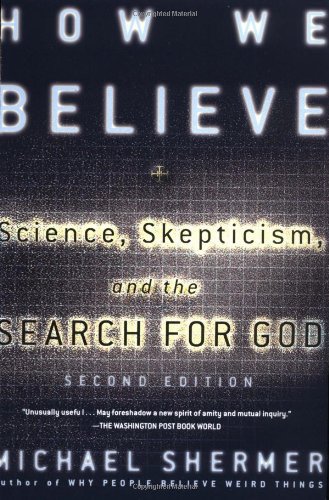
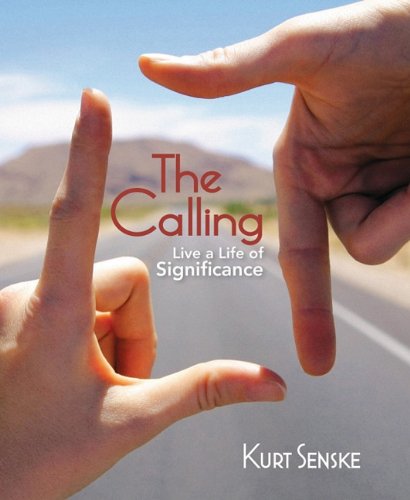
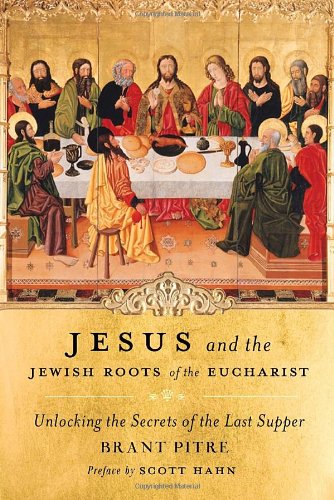
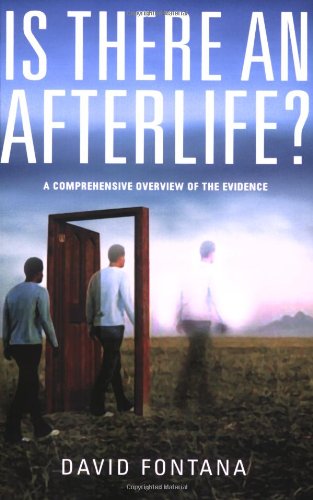

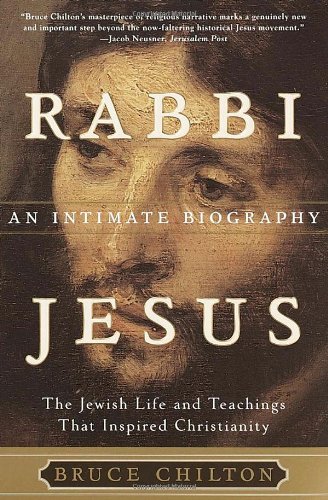
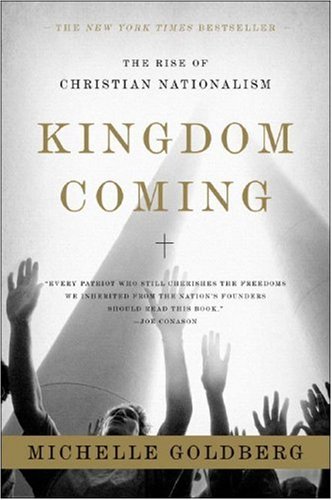

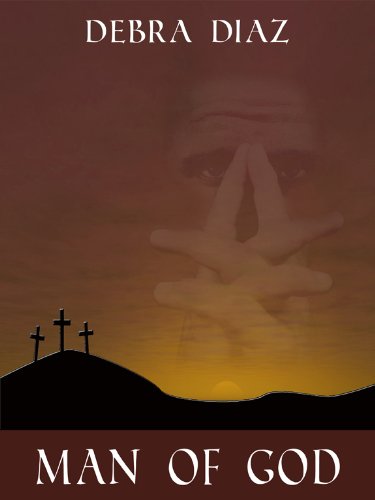
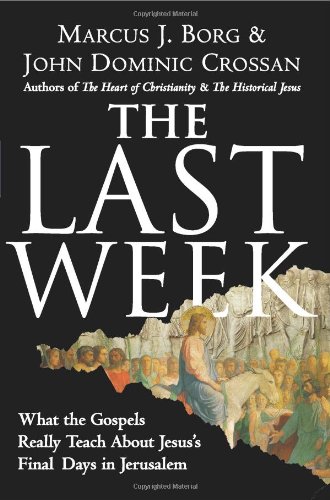
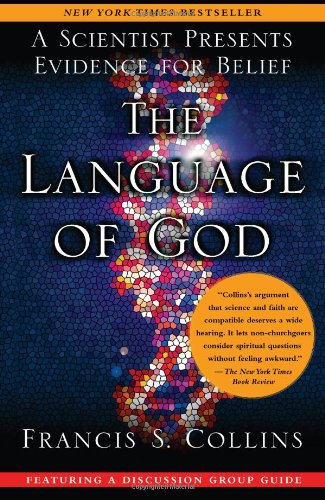
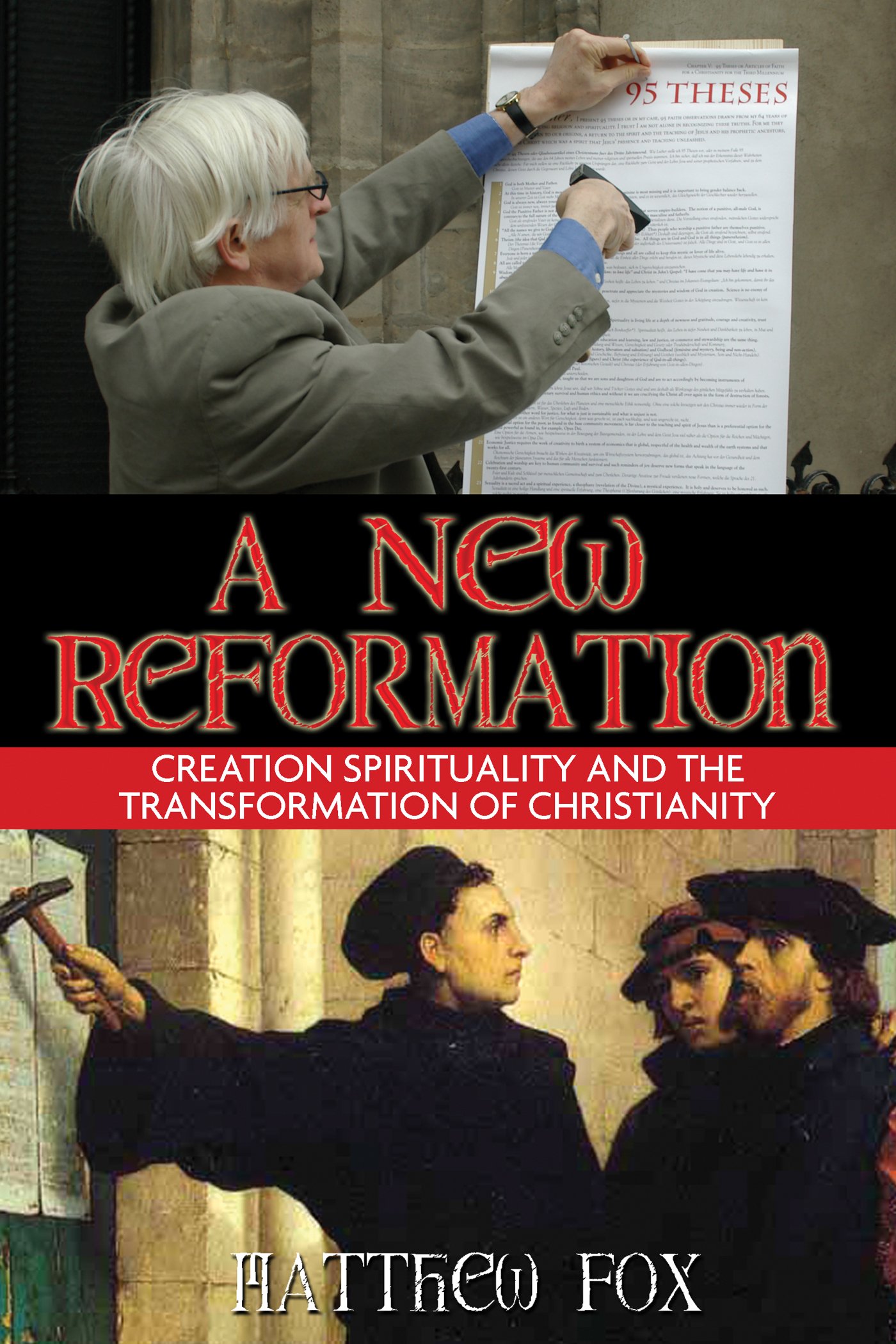
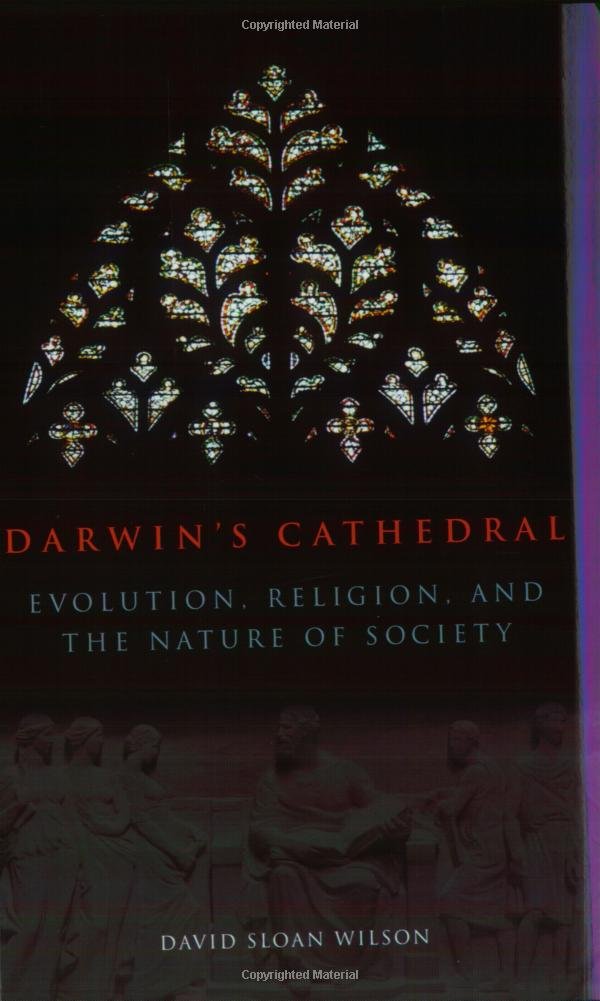
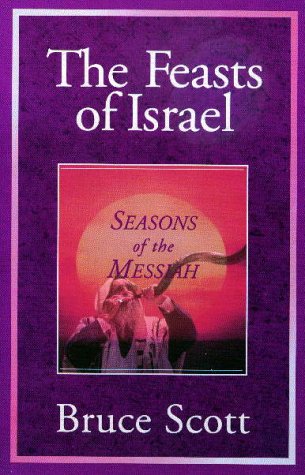
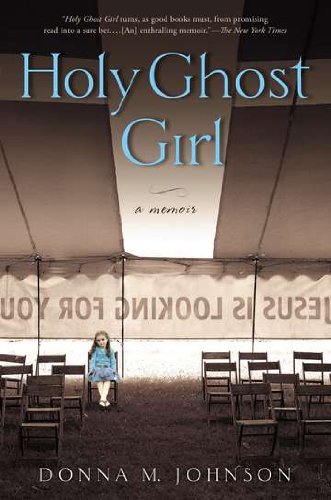
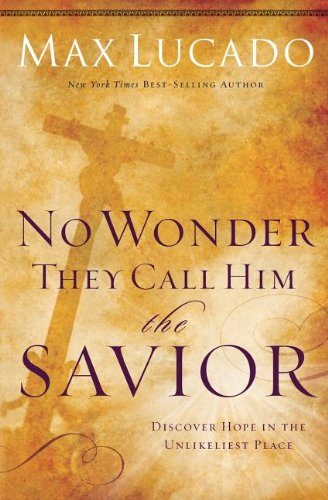
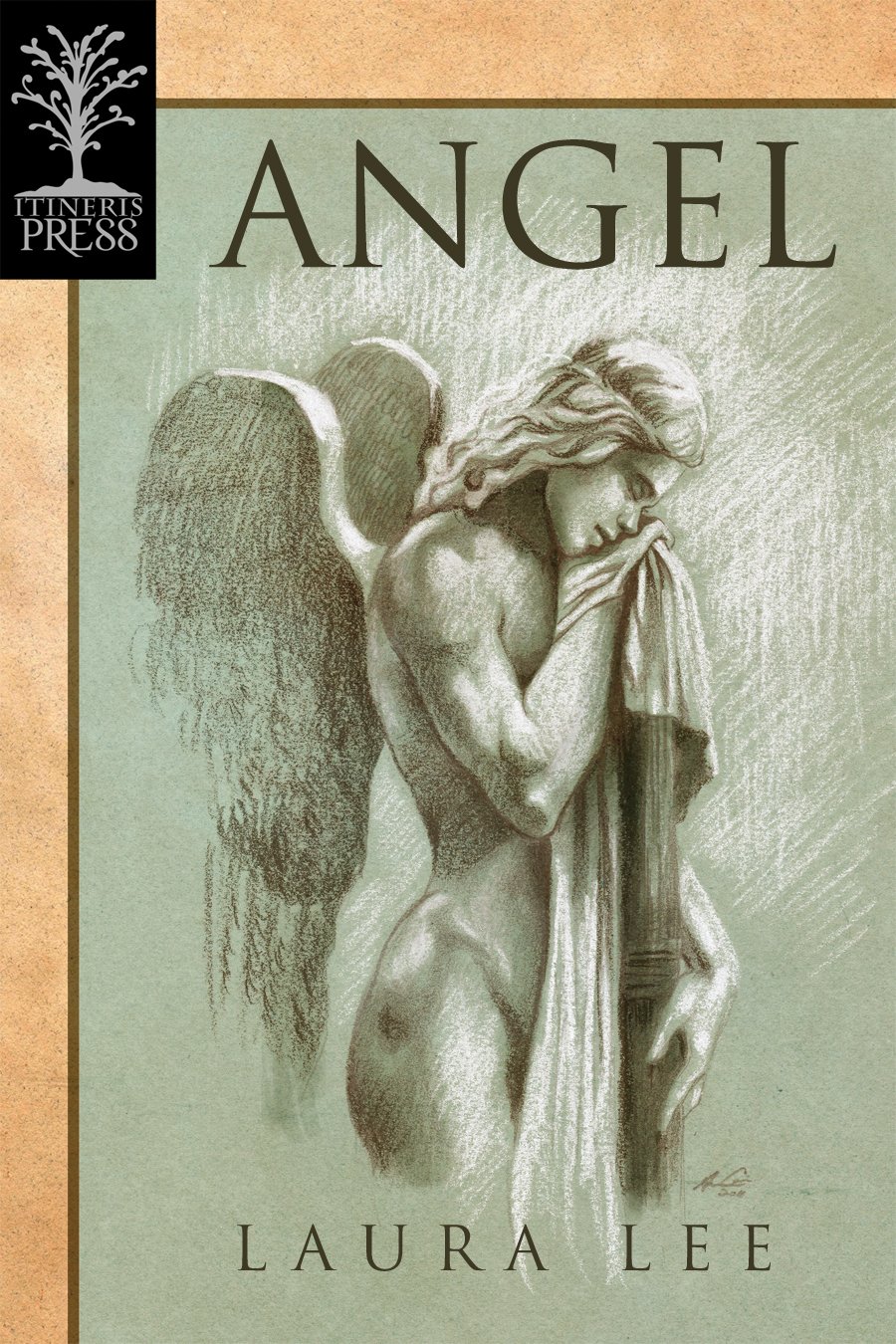
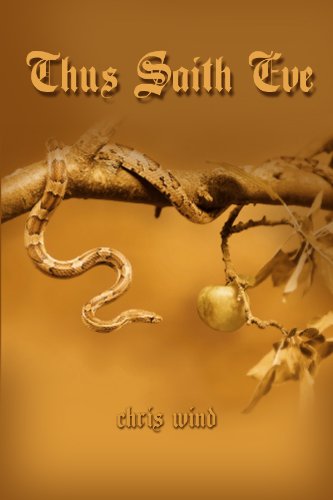
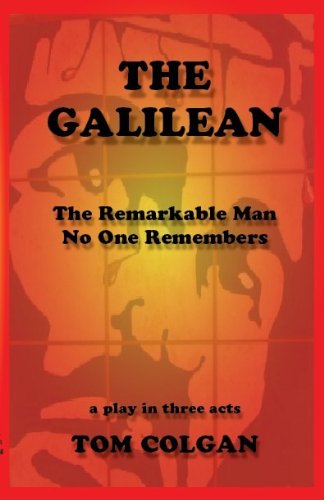
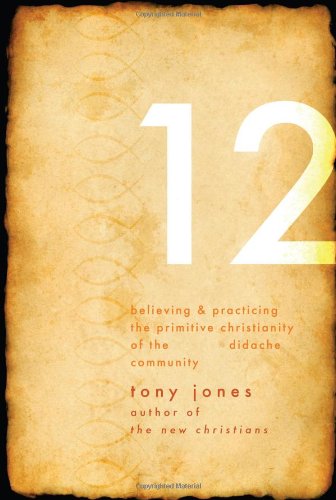









 354 Circles
354 Circles
 603 Goodreads Friends & Fans
603 Goodreads Friends & Fans

 Hello! I'm an author, historical Jesus scholar, book reviewer, and liberal Christian, which means I appreciate and attempt to exercise the humanitarian teachings of Jesus without getting hung up on any particular supernatural or religious beliefs.
The Bible is a magnificent book that has inspired and spiritually fed generations for thousands of years, and each new century seems to bring a deeper understanding of life’s purpose. This is true of not only Christianity; through the years, our age-old religions are slowly transforming from superstitious rituals into humanitarian philosophies. In short, we are growing up, and I am thrilled to be riding the wave.
I avidly read all thought-provoking religion titles. New authors: I'd love to read and review your book!
Hello! I'm an author, historical Jesus scholar, book reviewer, and liberal Christian, which means I appreciate and attempt to exercise the humanitarian teachings of Jesus without getting hung up on any particular supernatural or religious beliefs.
The Bible is a magnificent book that has inspired and spiritually fed generations for thousands of years, and each new century seems to bring a deeper understanding of life’s purpose. This is true of not only Christianity; through the years, our age-old religions are slowly transforming from superstitious rituals into humanitarian philosophies. In short, we are growing up, and I am thrilled to be riding the wave.
I avidly read all thought-provoking religion titles. New authors: I'd love to read and review your book!
 Hi! While Lee writes the articles and reviews the books, I edit, organize, and maintain the blog. The views expressed here are Lee's but I'm his biggest supporter! :-)
Hi! While Lee writes the articles and reviews the books, I edit, organize, and maintain the blog. The views expressed here are Lee's but I'm his biggest supporter! :-)
Connect With Me!